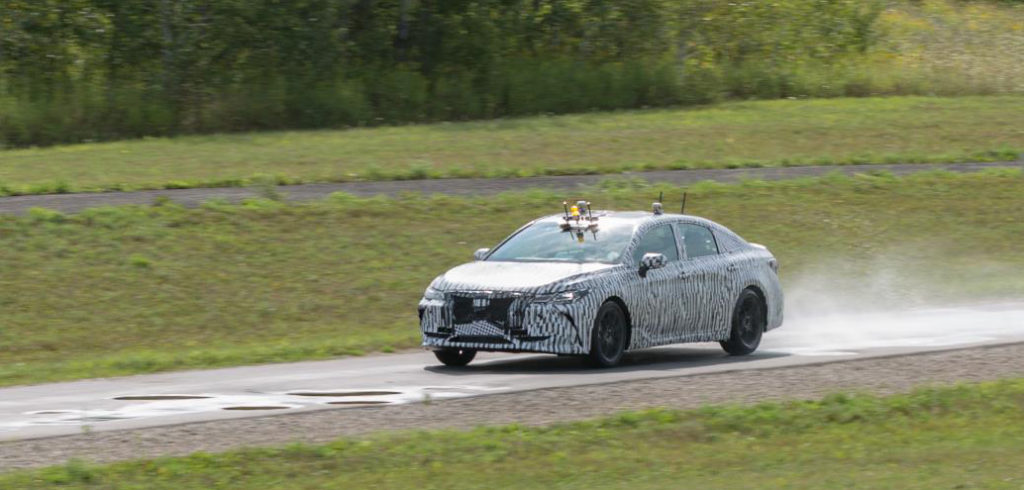Toyota has begun using autonomous vehicle (AV) technology to improve the safety and efficiency of its new vehicle durability testing.
Rough-road durability testing for Toyota’s North American vehicles is being conducted on a course in Michigan that the Japanese auto maker has specifically designed with potholes, dips and other track surface defects that recreate all the road-induced punishment that the average vehicle can expect to encounter during its lifetime in a single proving ground-conducted evaluation.
However, rather than a human driver enduring this punishing testing experience, Toyota is now carrying out it out with an automated system in the driver’s seat. So, when planning for durability testing began on prototypes of the all-new Avalon, Toyota sat a robot down at the wheel!
The results were not just that that human drivers were spared the bumpy ride, but using the robot also resulted in greater efficiency and safety as well as reduced test times.
“When our vehicle performance development (VPD) team began looking at testing for the 2019 Avalon, they developed a system that adapted and improved existing technology to allow the car to automatedly navigate around the course,” said Avalon chief engineer Randy Stephens.
“This not only saved the engineers and technicians from having to endure the gruelling ride, it also provided a more accurate test cycle. The system was proven during Avalon development, and we plan to use it during all future North American vehicle development cycles.”


